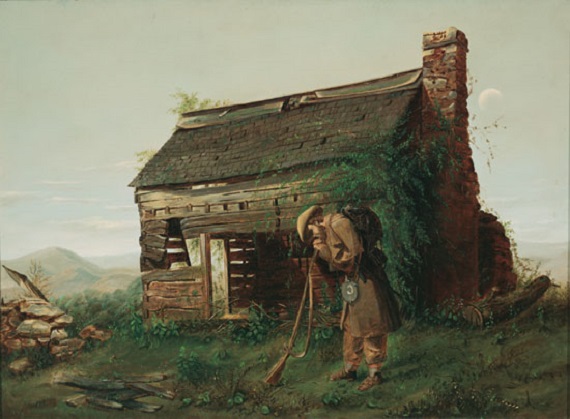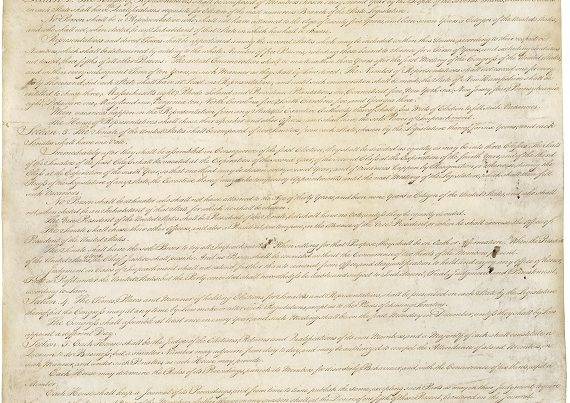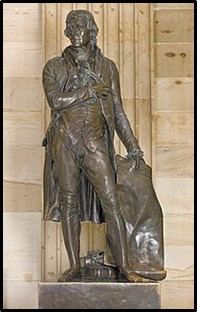It is said that the more things change, the more they stays the same. This has proven more than a mere cliche in the aftermath of the horrifying events in Charleston, SC last year. When racial animosity failed to materialize in the wake of the shootings at a predominantly African-American Church, Progressive political elements made the call to eliminate Southern culture in what has been dubbed by one media figure as a “cultural genocide”. Despite the fact that Charleston responded with prayer when other cities responded with riots, it was the symbols of the South and those who revered those symbols that were said to be at blame for the tragic deaths. Confederate flag supporters were called bigots while they were still on their knees praying for those killed at the Emanuel African Methodist Episcopal Church, a fact that mitigated nothing in the eyes of the protesters or their accomplices in the media.
History isn’t just written by the victors. It is also simplified by the victors so it can be taught to children. One does not need to be more Machiavellian than that to understand the motive of “Northern” historical proponents for silencing or ignoring data that contradicts their narrative of the War. However, one of the modern lines of attack upon Southern culture is the claim that every vestige of “Southern” history is both racist and false; that quotes and “facts” by Southern actors in the WBTS represent an attempt to justify slavery and bigotry and absolve culpability in a treasonous act of rebellion. This modern argument is a newer phenomenon and one that could not gain cultural or political traction while there was even one Confederate veteran alive to contradict it. The fact that such arguments motivate the current Kulturkampf of American Progressivism to shape society to their liking is proof of this.
This circumstance is very similar to the problems faced by Biblical Scholars and Christian Apologists concerning the historical veracity of the New Testament and even the existence of Jesus. Skeptical claims that the Gospel accounts were written too late to supply an accurate witness to the events they depict or were fables created as a means of controlling large social groups have taken a life of their own on the internet, but are generally dismissed by genuine scholars of religion as trash arguments at best. As British medieval historian James Hannam writes:
“The thesis that Jesus never existed has hovered around the fringes of research into the New Testament for centuries but never been able to become an accepted theory. This is for good reason, as it is simply a bad hypothesis based on arguments from silence, special pleading and an awful lot of wishful thinking. It is ironic that atheists will buy into this idea and leave all their pretensions of critical thinking behind.(http://www.bede.org.uk/jesusmyth.htm)
One of the (numerous) reasons the stories found in the New Testament are trusted as accurate history is they were written so close to the events depicted by people who were in a position to know the truth of the matter. There simply isn’t enough time for obviously legendary material (material that features elaborated details and distortions of facts) to have been added since the Gospels were written within the lifetimes of those who could have refuted them if they were not accurate.
The same pattern holds generally true of Southern history; the accounts and recollections of former Confederate soldiers, citizens and politicians were written at a time very close to their occurrence, by people who were witnesses, or privy to those who were witnesses, to the events in question. There simply wasn’t the necessary amount of time between the events of the war and when they were set to paper for the masses for wholesale exaggerations or outright lies on either side to have become accepted as factual data without credible challenge. This effectively prevented the Northern “version” of the war of becoming the default history of the conflict.
It is here that the latest challenges by “Northern” historians and Progressive politicians comes; since those best in position to refute the claims that the North was the virtuous side morally, while the South was trying to set up a “slave empire” are gone, it is now easier to spin the truth without challenge. It’s not that the claims of Northern moral superiority were unheard of in the past, but that there were so many people who knew the truth that no one could believe it outside of places where only the Northern historical spin was heard (such as Northern schools). There certainly were no wide scale efforts to deny the Southern view on the war’s causes at the time; if the memoirs of former Confederates weren’t true, why was there no widespread, concerted attempt to refute their stories before now?
Here again we can look to Biblical history to see the pattern of behavior. The first “legendary” or “apocryphal” materials we find date to about 125-150 years after the events of the New Testament, and these works were hotly disputed among the various Christian subgroups around at the time. The largest of these subgroups, the Gnostics, were somewhat successful at first in spreading their modified theology into the Roman world. This was because the Gnostics blended what the Roman world already thought about reality with the Gospel stories, reinterpreting the events of the New Testament through the prism of an already accepted neoplatonic metaphysics.
Most apocryphal works do not make up events so much as cherry pick which events are emphasized and cast them in the most positive light (for their theology) as possible. This describes how Northern historians have handled the events of the WBTS to a T; by ignoring the Corwin amendment and the statements of leading Confederate figures, as well as cherry picking Lincoln and other Northern leaders’ words, these modern day Yankee “Gnostics” are succeeding where their earlier compatriots failed. They have created a mythos around Lincoln and the Northern war efforts that comports with the worldview they wish to portray. This mythos portrays the South as a racist and treasonous oppressors and the North as tireless crusaders for the cause of Union and Abolition. In the hands of Progressives, this twisted mythos allows them to impose an Orwellian narrative on the past to justify their Gramscian agenda today.
This corrupting influence eventually shapes the narrative of even those who should know better. Commentators Dennis Prager and Glenn Beck, both amateur students of history who have access to primary sources and scholars far in excess of what the general public has, nevertheless have made statements affirming the Northern spin on the causes of the WBTS. This illustrates the problem of allowing the “heresies” of these “Yankee Gnostics” to go unchecked; two public figures that would otherwise be sympathetic to the Jeffersonian goals of the Confederacy are instead convinced of the South’s villainy. This is very much akin to how, despite the mountains of evidence that General Nathan B. Forrest was never a willing member of the Klan and was exonerated from the charge by an act of Congress, many members of the public think he is rotting in Hell because he was a leader of that vile group. The myth has become the reality.
The early Church Fathers finally muted the influence of the more heretical subgroups, after much argument and debate, by developing a canon of officially recognized, authoritative literature which would be useful in settling doctrinal disputes. While process began organically, it was the challenge of the heretic Marcion that forced the Church to organize the canon systematically. While the full effect of having an official canon on the Church is the stuff of very thick books, one aspect is relevant to Southern history. The Biblical canon gave an authoritative set of documents by which a defense of the faith could be mounted by those called to do so.
The same can and should be done for Southern history. While history is not the same thing as religion, there is enough similarity we can see a sociological pattern developing; traditional Northern historians are functioning as the Gnostics did for early Christianity, laying a popular foundation for their view of history by ignoring and dismissing data that runs contrary to their point of view. Progressive political types are then the Marcionites, attempting to force their alternate viewpoint on others to bring about conformity of behavior and thought. Only by presenting an official Southern historical canon can we hope to withstand the cultural onslaught of our Progressive, Lincolnesque, modern-day Marcionites.
This will require the cooperation of universities, civic and historical societies, as well as private book donors. Books written by Confederate authors, slave narratives and oral histories, foreign histories of the War, and editorials of Northern, Southern and foreign newspapers of the time will need to be tracked down, reviewed and digitized. And we should include representative examples of Northern histories as well as statements that are “embarrassing” (such as James Henry Hammond’s “Cotton is King” polemic), to put Southern claims into historical context. Just as importantly, these resources would need to be made available not just to academics, but to the common man to read; they must be available on the internet for all to read. As the Bible says that each man should be able to give reason for his Faith, the Southern man should be given the tools necessary to give reason for his honor and pride.
While the occasional internet meme may include a quote or two from the letters and biographies of Confederate figures, access to those sources is not widespread, nor does it have an authoritative voice. By compiling an official canon of Southern historical documents we can empower both scholar and layman with the proofs needed to counter the Northern and Progressive spins on the history of the WBTS. If we then can find a way to emulate the early Church in disseminating these documents far and wide – and we have the internet, whereas the Apostle Paul had to walk – we can equip the sons and daughters of the South to defend their heritage.
The more things change, the more things stay the same indeed.







